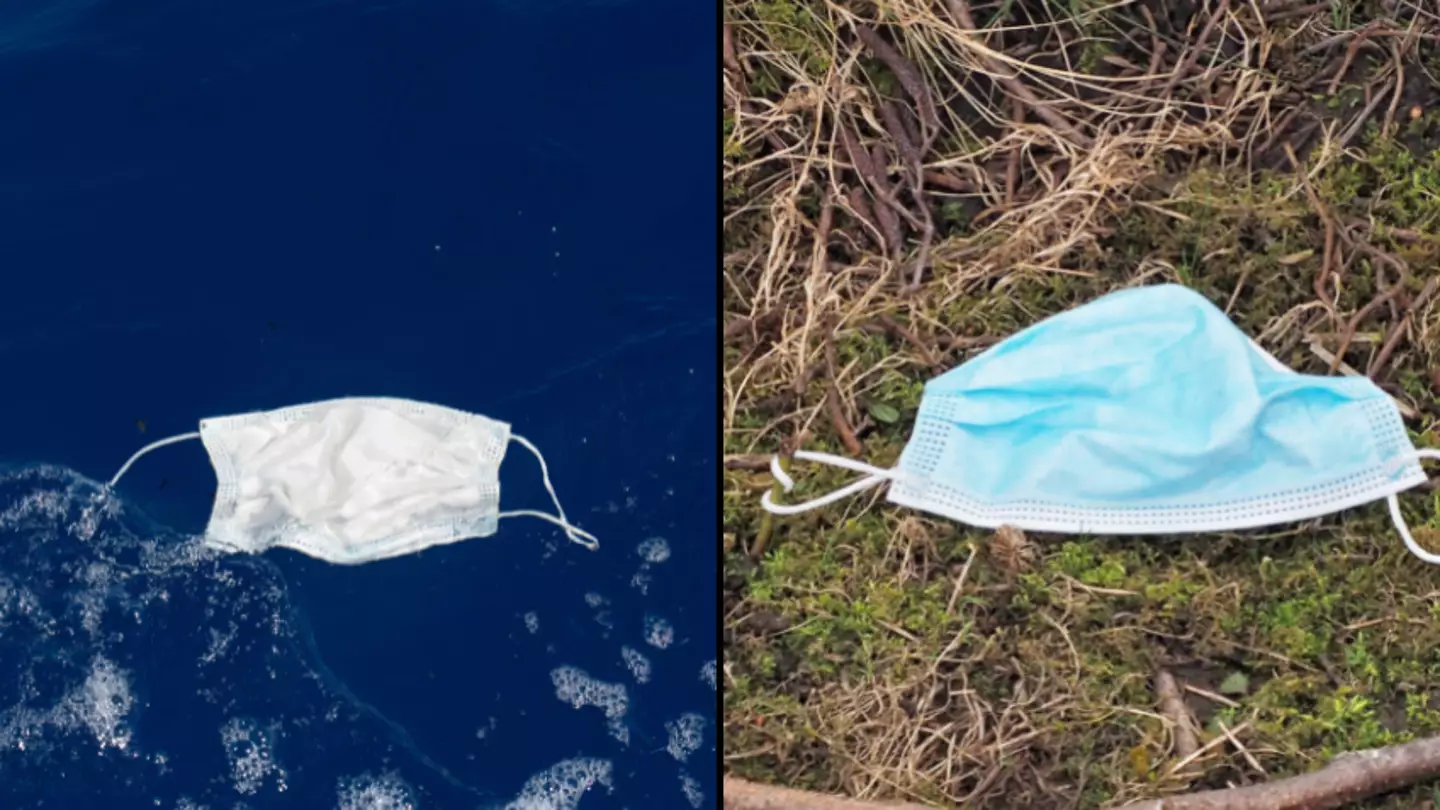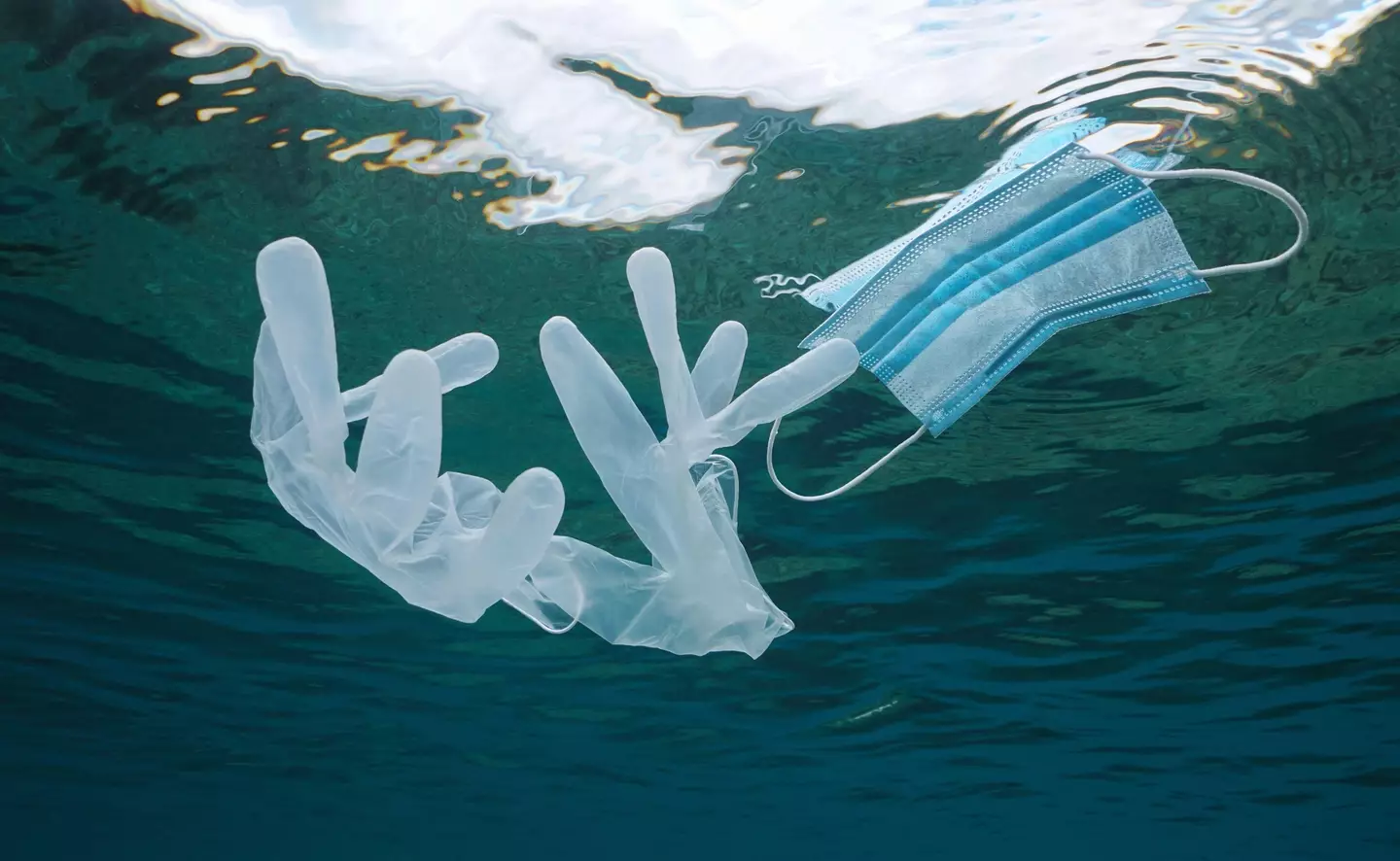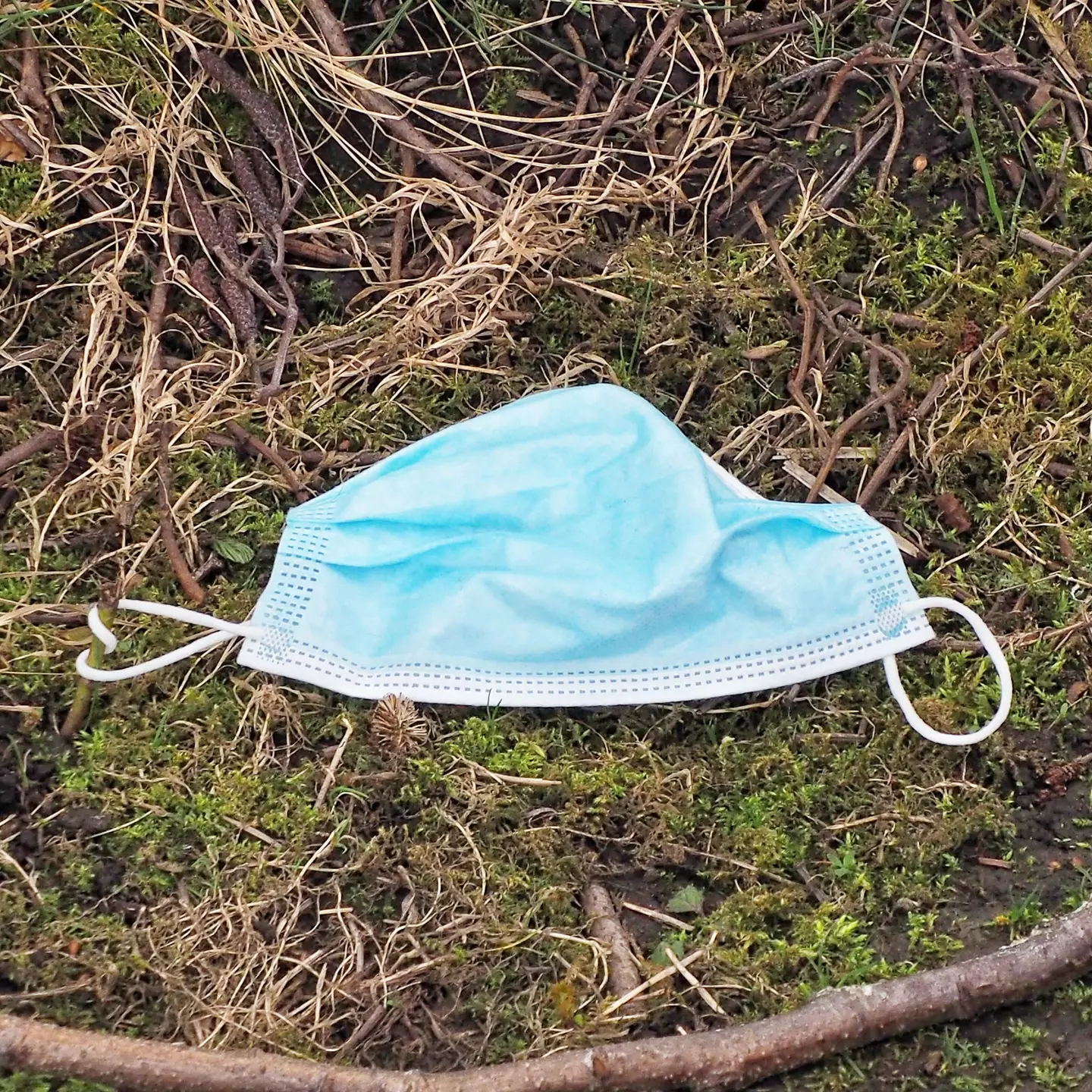
A few years ago, the majority of us didn't have any call for face masks and many of us had never even worn one.
But nowadays, almost all of us have. They joined the wallet/keys/phone checklist back in 2020 and have been intermittently made mandatory in all manner of settings.
However, while they may have helped to reduce the transmission of Covid-19, the scale of their usage poses a great threat to the environment.
Advert
A 2020 study estimated that 129 billion face masks are being used globally every month - equivalent to three million every single minute.
The disposable masks contain plastic that can't be readily biodegraded, but may fragment into smaller plastic particles over time and release harmful chemicals.

The masks were also found to release hundreds, and sometimes thousands, of toxic particles — particles that can potentially disrupt entire marine food chains and contaminate drinking water.
Advert
Writing in the scientific journal Frontiers of Environmental Science & Engineering last year, researchers warned: "With increasing reports on inappropriate disposal of masks, it is urgent to recognize this potential environmental threat and prevent it from becoming the next plastic problem.
"Waste plastics are one of the most prevalent environmental pollutants today. Even before Covid, over 300 million tons of plastics are produced globally per year and most end up in nature as waste.
"Plastic products can not be readily biodegraded but fragment into smaller plastic particles, namely micro- and nanoplastics that widespread in ecosystems.
"Ingestion of microplastics is known to cause direct adverse effects and also expose organisms to toxic chemicals and pathogenic microorganisms."
Advert
But two years into the pandemic, world leaders have been accused of ignoring these warnings and failing to invest in reusable and biodegradable alternatives.

"The plastics industry saw Covid as an opportunity," John Hocevar, the oceans campaign director at Greenpeace USA, told Business Insider.
"They worked hard to convince policymakers and the general public that reusables were dirty and dangerous, and that single-use plastic is necessary to keep us safe."
Advert
Indeed, global consumption of single-use plastics has increased by up to 300 percent since the start of the pandemic, according to a 2021 Organisation for Economic Co-operation and Development report.
Compulsory mask-wearing may be coming to an end in some places - with England due to soon scrap all Covid measures - but masks are likely to remain a part of culture as we 'learn to live with Covid'.
As such, it is vital that governments across the globe address the issue collaboratively, according to Sarper Sarp, a professor of chemical engineering at Swansea University in Wales.
He said: "There are really promising approaches around the world.
Advert
"We need to bring them together. We need to make governments understand that they have to act and then make resources available. And then we can hopefully start solving the problem before it becomes out of hand."
Topics: World News, Environment, Coronavirus